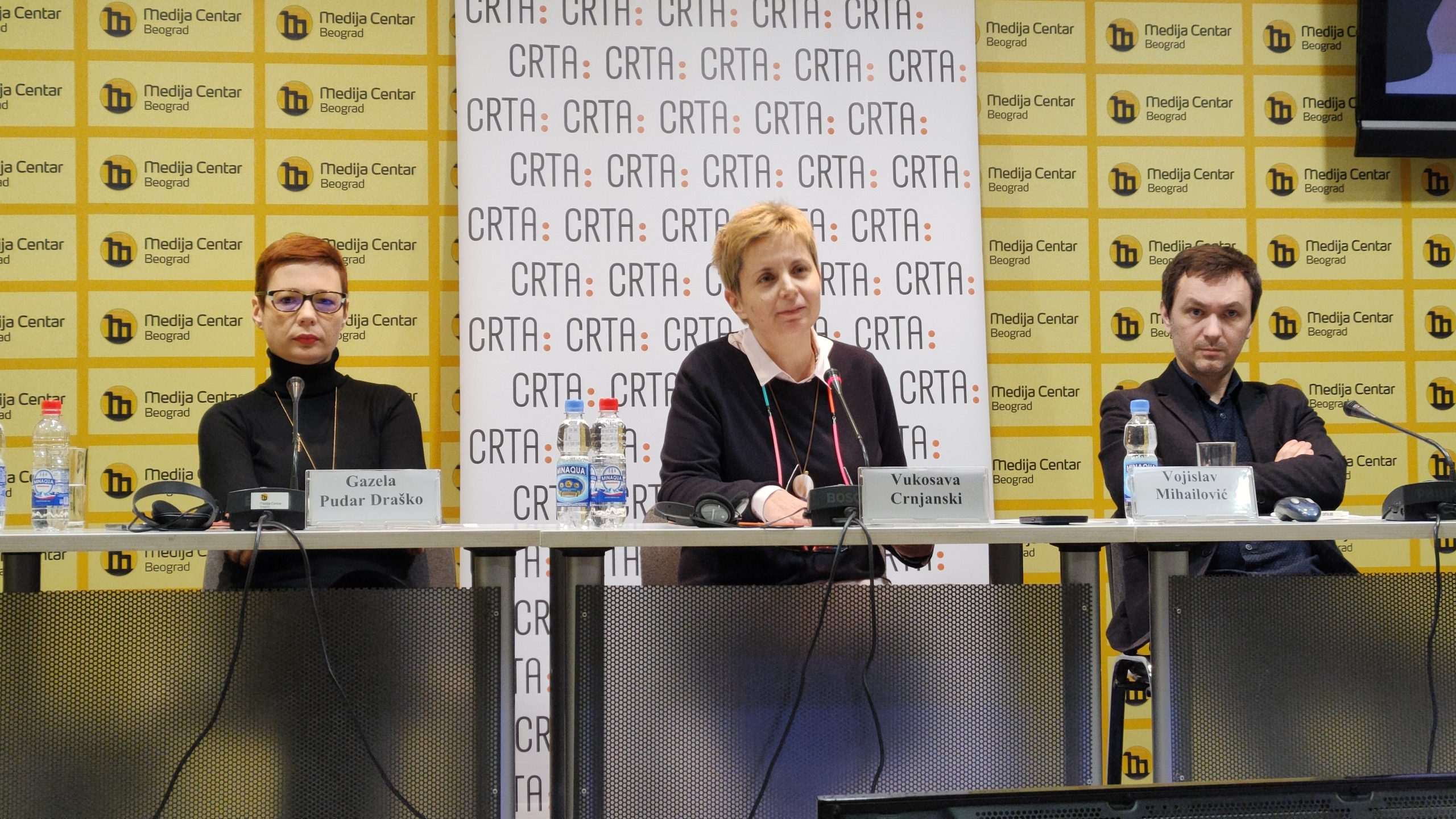CRTA’s research: More trust in civil society, less time for activism
 Foto: Crta
Foto: Crta
Citizens’ trust in civil society organizations is growing – this is one of the findings of the public opinion survey “Audit of political engagement in Serbia 2022” presented by Crta on the occasion of the World NGO Day. Almost 50 percent of respondents now believe that the civil sector protects the public interest, while ten years ago, only a third of citizens shared this opinion.
About half of the population who is able to vote believes that democracy is the best form of governance for Serbia, and a similar number of those think that we need a strong leader whom we would all listen to. Since Crta has been conducting this research for 10 years, a trend can be observed as in the last decade, the number of citizens who believe that democratic governance is the best option for Serbia, despite all its shortcomings, is steadily increasing.
The majority (53 percent) see politics as a space in which citizens should be actively involved which indicates there is a significant potential for participatory democracy. However, the limitations are reflected in the modest number of citizens (31 percent) who believe in the possibility of changes in society, as well as in only 15 percent of those who estimate that they could personally engage in politics.
“The willingness of citizens to get involved in democratic processes, to fight for their rights and to protect public interest, is an important indicator of the health of a certain democracy. We have witnessed that, despite everything, many local initiatives persistently prove that citizens have power. In a situation in which laws often remain cold facts on the paper because competent institutions do not implement them consistently, in which media manipulation relativizes public interest, and the public remains confused, we cannot judge citizens lightly because of insufficiently high levels of participation,” says Vukosava Crnjanski. , director of Crta.
Citizens’ involvement in actions and initiatives at the local level was slightly increased until the outbreak of the pandemic, when, for understandable reasons, the situation changed. During the year 2022, every fifth citizen participated in some action to solve the problems of the local community. Those who became active were most often focused on communal (49 percent) and environmental issues (32 percent).
The majority cite lack of time as the reason for non-engagement, and a fifth of citizens say they are not interested. However, year after year, the number of those who do not believe that something can be achieved with civic activism is decreasing.
“Although this seems like a negative finding, it should be taken into account that it is much easier to convince people to take part and to participate in a certain action, then to regain the confidence that was lost in relation to the effectiveness of such actions,” said Vojislav Mihailović, head of public opinion research in Crta.
In terms of specific activities, most citizens signed a petition (31 percent), 23 percent discussed politics on the Internet, and 20 percent participated in protests and demonstrations.
“We have a lot of local initiatives, and movements that unite and connect in order to reach what we all need, which is success, even if it’s a small success and a small victory. In the past, there have been a lot of successes that gave citizens hope that they can change something due to their involvement,” said Gazela Pudar Draško, director of the Institute for Philosophy and Social Theory.
The research was conducted in November 2022 on a random and representative sample for the Republic of Serbia (without Kosovo), which included 1026 respondents.
Report summary in English is available here while the full report in Serbian is available here.








